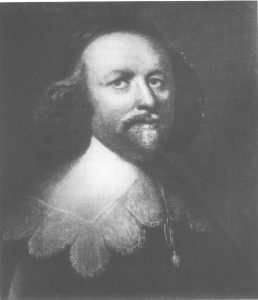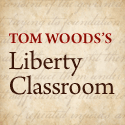
Archibald Johnston (1611-1653)
If you look at the picture above, you’ll see a man seated with his back to the audience. I was told by one of the elders at my church that is Archibald Johnston. Johnston was one of members of the delegation from Scotland and a lawyer by training. My elder said visited my class one day to point out Johnson and said that one of his cousins was a descendant. Small world.
Johnston, also known as Lord Warriston, studied law at the University of Glasgow and was admitted to the Faculty of Advocates in 1633.
Johnston played an important role in writing the Scottish National Covenant (1638), which opposed King Charles I’s efforts to mandate Anglican forms of worship on the Presbyterian Church of Scotland. According to Johnston, episcopacy was “that great-grandmother of all our corruptions.”
In 1644, he became a member of the Westminster Assembly, and strongly opposed proposals tolerating independency.
In 1657, as a leading Remonstrant Johnston was appointed to the office of Lord Clerk Register by Oliver Cromwell. Under both Oliver and Richard Cromwell, he was in the House of Lords and a member of the Council of State. When the Rump Parliament was restored in 1649, and upon its suppression, he became permanent president of the Committee of Safety.[1]
But things turned for the worse for Johnston after the restoration of the monarchy, so he was compelled to seek refuge abroad. He was condemned to death in absentia and arrested in the northern Normandy city Rouen. King Louis XIV approved of his extradition and he was returned to Britain. He spent time as a prisoner in the Tower of London, and was later was hanged in Edinburgh on July 22, 1663


